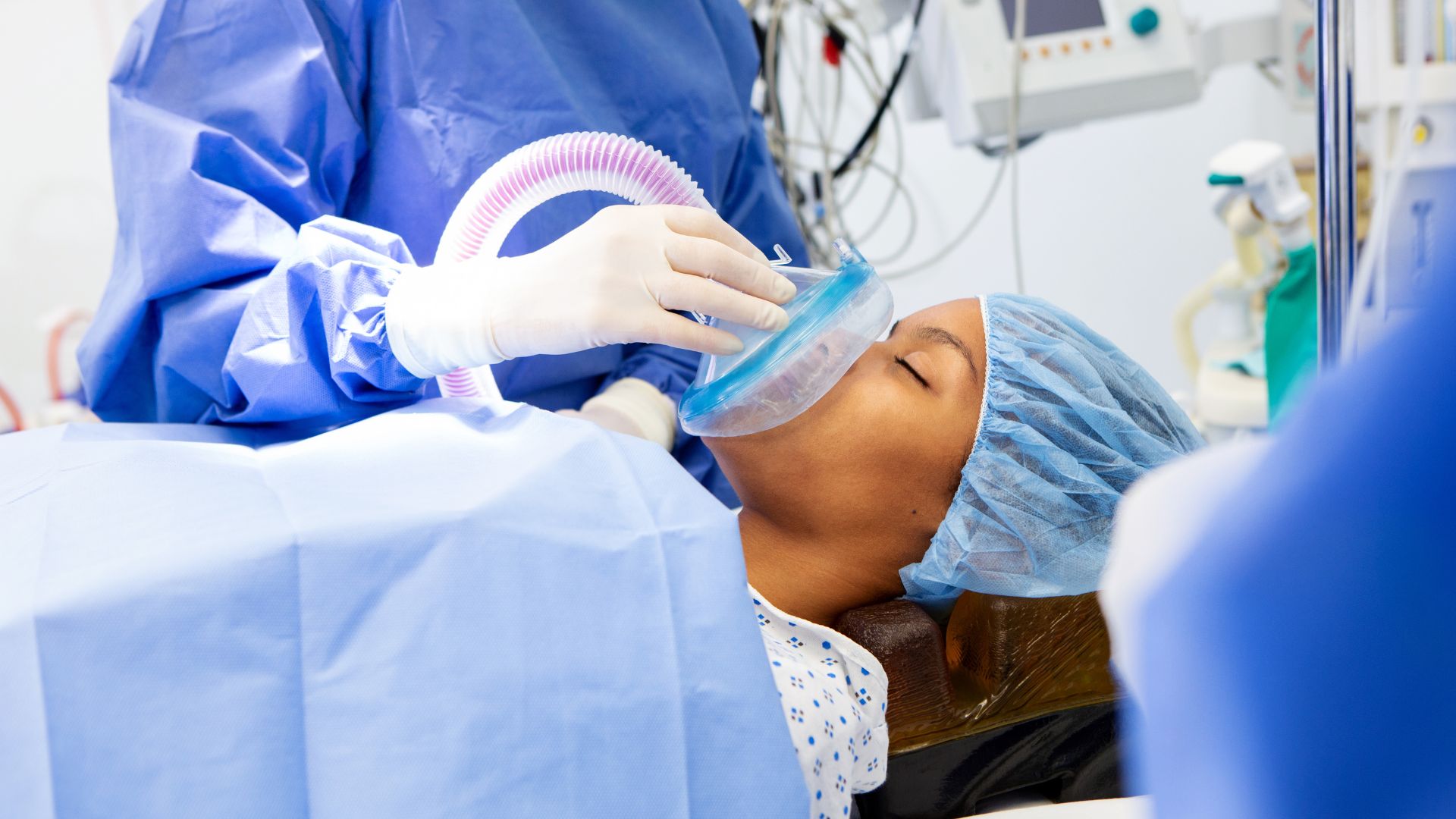When jaw misalignment affects your ability to chew, speak, or breathe, corrective jaw surgery, also known as orthognathic surgery, may be the solution. At Atlanta Oral and Facial Surgery, we connect patients with board-certified oral and maxillofacial surgeons who specialize in advanced orthognathic procedures. By addressing functional and aesthetic concerns, corrective jaw surgery can enhance both oral health and facial harmony.
In this comprehensive guide, we’ll explore the benefits, the surgical process, and essential recovery tips to help you understand why Atlanta Oral and Facial Surgery is the premier choice for corrective jaw surgery in Atlanta.
1. What Is Corrective Jaw Surgery (Orthognathic Surgery)?
Orthognathic surgery is a surgical procedure designed to correct skeletal and dental irregularities in the upper and/or lower jaw. It realigns the jaws to improve functionality and facial aesthetics, offering life-changing results for patients experiencing severe jaw misalignment.
Common reasons for corrective jaw surgery include:
- Malocclusion (bite misalignment): Overbite, underbite, or crossbite.
- Jaw asymmetry: Uneven jaw positioning, causing facial imbalance.
- Difficulty chewing, swallowing, or speaking.
- Chronic jaw pain or TMJ disorders.
- Obstructive sleep apnea: Caused by airway obstruction due to jaw positioning.
2. Benefits of Corrective Jaw Surgery
Choosing corrective jaw surgery at Atlanta Oral and Facial Surgery can significantly improve both oral health and quality of life. Here’s how:
a. Improves Bite Functionality
Orthognathic surgery corrects bite issues such as overbites, underbites, and open bites, enabling better chewing, biting, and swallowing.
b. Enhances Facial Aesthetics
Jaw misalignment can create an imbalanced facial appearance. Corrective surgery restores facial symmetry, enhancing the jawline and overall facial profile.
c. Alleviates TMJ Pain and Jaw Dysfunction
Chronic jaw pain, stiffness, and headaches associated with TMJ disorders can be alleviated by repositioning the jaw, reducing stress on the joint.
d. Improves Breathing and Sleep Quality
Patients with sleep apnea often experience a dramatic improvement in breathing and sleep quality after jaw surgery, as it opens the airway and reduces obstructions.
e. Boosts Confidence and Self-Esteem
The aesthetic enhancements achieved through orthognathic surgery can improve self-confidence, helping patients feel more comfortable with their appearance.
3. Are You a Candidate for Corrective Jaw Surgery?
The professionals at Atlanta Oral and Facial Surgery will conduct a thorough evaluation to determine if you’re a candidate for orthognathic surgery. Ideal candidates typically experience:
a. Functional Issues
- Difficulty chewing, biting, or swallowing.
- Chronic jaw pain, locking, or clicking.
- Speech impairments caused by jaw misalignment.
b. Aesthetic Concerns
- Disproportionate facial structure or jaw asymmetry.
- Receded chin or prominent jaw causing facial imbalance.
c. Health Considerations
- Good overall health with no underlying conditions that could impede healing.
- Commitment to maintaining oral hygiene and attending follow-up appointments.
4. The Corrective Jaw Surgery Process at Atlanta Oral and Facial Surgery
Choosing Atlanta Oral and Facial Surgery ensures you’re working with experienced professionals who guide you through every step of the process. Here’s what to expect:
a. Initial Consultation and Pre-Surgical Evaluation
During the initial consultation, our surgeons will:
- Conduct comprehensive exams, including X-rays, 3D imaging, and dental impressions.
- Collaborate with orthodontists to develop a customized treatment plan.
- Discuss sedation options and outline the surgical process, risks, and benefits.
b. Pre-Surgical Orthodontics
Most patients require orthodontic treatment (braces) before surgery to align the teeth properly. This phase typically lasts 12 to 18 months, ensuring the teeth are in the correct position for optimal surgical outcomes.
c. The Surgical Procedure
Corrective jaw surgery is performed under general anesthesia in a hospital or surgical center:
- Incisions and Repositioning: Incisions are made inside the mouth to access the jawbone, eliminating visible scarring.
- Bone Repositioning: The surgeon repositions the upper and/or lower jaw, securing it with plates, screws, or wires for stability.
- Closing the Incisions: Sutures are used to close the incisions, and the patient is taken to recovery.
d. Post-Surgical Recovery and Hospital Stay
Patients typically stay in the hospital for 1 to 2 days for observation and pain management before being discharged.
5. Recovery and Aftercare: What to Expect
Proper recovery and aftercare are crucial for successful outcomes. Our specialists provide detailed post-operative instructions to ensure a smooth recovery.
a. Immediate Post-Surgery Care
- Swelling and Bruising: Swelling peaks within the first 48 hours but subsides gradually over 2 to 3 weeks.
- Pain Management: Take prescribed pain medications and antibiotics as directed to manage discomfort and prevent infection.
- Wired or Band-Supported Jaws: In some cases, the jaw may be temporarily wired or banded shut to ensure stability.
b. Dietary Modifications
A soft or liquid diet is essential during the initial healing period. Recommended foods include:
- Smoothies, soups, and broths.
- Yogurt, applesauce, and mashed potatoes.
- Protein shakes to maintain nutritional intake.
Avoid chewing hard foods for at least 6 weeks and follow all dietary guidelines provided by your surgeon.
c. Oral Hygiene Practices
- Use a soft-bristled toothbrush and rinse with an antimicrobial mouthwash to maintain oral hygiene.
- Avoid vigorous brushing near the surgical site during the early recovery phase.
d. Follow-Up Appointments
Regular follow-up visits are crucial to monitor healing progress. Your surgeon will ensure the jaw is healing properly and adjust any orthodontic appliances if necessary.
6. Potential Risks and Complications
While corrective jaw surgery is highly successful, it’s important to be aware of potential risks, including:
- Infection at the surgical site.
- Nerve damage causing temporary or permanent numbness.
- Jaw stiffness or difficulty opening the mouth.
- Relapse of jaw positioning (rare with proper post-operative care).
The experts at Atlanta Oral and Facial Surgery take every precaution to minimize risks and provide personalized care to ensure optimal outcomes.
7. Why Choose Atlanta Oral and Facial Surgery for Corrective Jaw Surgery?
a. Experienced, Board-Certified Surgeons
Our team of board-certified oral and maxillofacial surgeons has extensive experience in performing complex orthognathic surgeries with precision and care.
b. Collaborative, Multidisciplinary Approach
We work closely with orthodontists, general dentists, and other specialists to ensure comprehensive care and successful outcomes.
c. Advanced Technology and Techniques
Using state-of-the-art technology, including 3D imaging and computer-guided surgery, we deliver precise results that enhance both function and aesthetics.
d. Comprehensive, Compassionate Care
From the initial consultation to post-operative follow-up, we prioritize patient comfort, safety, and satisfaction, ensuring a seamless experience.
8. Frequently Asked Questions About Corrective Jaw Surgery
Q1: How Long Does Corrective Jaw Surgery Take?
The surgery typically lasts between 2 to 5 hours, depending on the complexity of the case.
Q2: How Long Is the Recovery Period?
Initial recovery takes about 2 to 6 weeks, but full healing and final results may take 6 to 12 months.
Q3: Is Corrective Jaw Surgery Painful?
Patients may experience discomfort, swelling, and bruising post-surgery, but pain is effectively managed with medication.
Q4: Will There Be Visible Scars?
No, incisions are made inside the mouth, so there are no visible scars.
Corrective jaw surgery is a life-changing procedure that improves both functionality and appearance. At Atlanta Oral and Facial Surgery, we connect patients with leading oral surgeons who provide expert care using the latest advancements in surgical technology. Whether you’re seeking relief from jaw pain or looking to enhance your facial aesthetics, we are here to guide you through every step of the process.
If you’re considering corrective jaw surgery in Atlanta, contact us today to schedule a consultation. Let us help you achieve a healthier, more confident smile with personalized, compassionate ca



